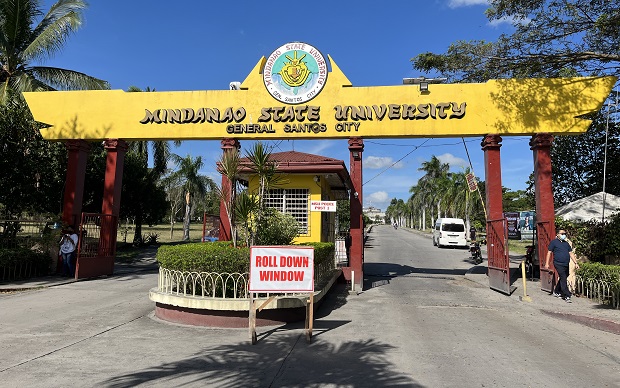An intelligent systems laboratory was launched last week in Gen. Santos City, a move seen to help the local government collect accurate traffic data and ensure that nutrient levels in nearby bodies of water remain safe for fish and other marine species.

Installed at the College of Engineering of the Mindanao State University in the city, the research lab includes “simulations software, programmable logic controllers, 3D printers, and robotic systems,” the university said on its website.
The P5-million facility was made possible through a grant given by the Department of Science and Technology-Philippine Council for Industry, Energy, and Emerging Technology Research and Development (DOST-PCIERRD), the website added.
The intelligent systems lab — the first of its kind in MSU-General Santos — could also be used to develop smart farming technologies, university officials who attended the March 1 launch said.
With the new lab, experts could develop a network of devices that could collect, transmit, and analyze data about water quality, among other parameters, said Dr. Cristina P. Dadula, the lab’s project manager.
These data could be useful for preventing increased levels of nutrients and other chemicals in bodies of water which deprive marine animals of dissolved oxygen, resulting in fishkill.
In January 2021, fishkill caused by increased levels of sulfuric acid in the water has destroyed P20-million worth of tilapia in Lake Sebu. In 2017, fishkill also decimated P120-million worth of tilapia in the same lake, an important watershed located 52 kilometers away from Gen. Santos City.

Moreover, the intelligent systems laboratory could also be linked to a CCTV system that monitors the city’s vehicular traffic flow, Dr. Noel S. Gunay, dean of the MSU’s College of Engineering in Gen. Santos.
“Artificial intelligence, working 24 by 7, could be used to count, classify, and profile the cars, jeepneys, and tricycles plying the city’s streets,” Gunay said.
Once collected, traffic data could be used to formulate policies that could help cut travel times, especially during peak hours in the city, Gunay added.
In Gen. Santos, tricycles are the mode of transportation most used by commuters. Anecdotal estimates put the city’s tricycles at 25,000 to 40,000. Owing to their size, tricycles can make quick turns during their trips, unduly cutting off and delaying larger vehicles traveling beside and behind them.
As a result, tricycles — and their drivers’ unruly road behavior — have been blamed for causing road congestion in General Santos.
So far, city efforts to control the proliferation of tricycles and the behavior of their drivers have been unsuccessful. At least two city councilors who have proposed stricter measures against tricycles have failed their reelection bids, observers say.
However, with the help of the newly-launched laboratory, the city could be aided in identifying locations for traffic lights, check which roads could be transformed into one-way streets, and possibly restrict or allow the use of certain roads for public and private vehicles, Gunay said.
“In the future, the lab could also be used to capture and monitor traffic violations without any human intervention,” the College of Engineering dean said.

The launch of the intelligent systems laboratory coincided with the final round of the 2023 Call for Proposals campaign in General Santos City.
Three of ten proposals from the faculty of MSU-GenSan were approved for funding, the DOST-PCIEERD said in a statement.
The first proposal aims to collect data about the kinds of COVID-19 pandemic-induced wastes in General Santos City which, in turn, could be used to plan and implement waste management activities and preserve marine resources in the Sarangani Bay Protected Seascape.
The second aims “to characterize and determine the exact type of the unknown non-metallic mineral that is found in General Santos City and the municipalities of Sarangani Province,” the agency said. The third seeks to establish the first university-based Technology Business Incubator for smart systems innovations in MSU-Gensan.
The 2023 Call for Proposals campaign “urges researchers to submit applications for funding for research and development,” the council said in a statement.
The program — which later funded MSU-GenSan’s intelligent systems lab — “was introduced in Pampanga in January, with a focus on North Luzon’s researchers and innovators,” the council added in the same statement.
In February 1, the second phase for the NCR and South Luzon regions was held in Alabang while the third leg was held in Iloilo on February 16, 2023 for the Visayas region.
Besides helping foster the country’s innovation environment, DOST-PCIEERD’s Call for Proposals campaign also helps bring together professionals, practitioners, and experts from universities, businesses, and government agencies.
“The Council remains committed to expanding our reach to universities and colleges and establish more laboratories and facilities in the regions to develop and upskill the Philippines’ human resource in STEM,” DOST-PCIEERD executive director Enrico Paringit said.




